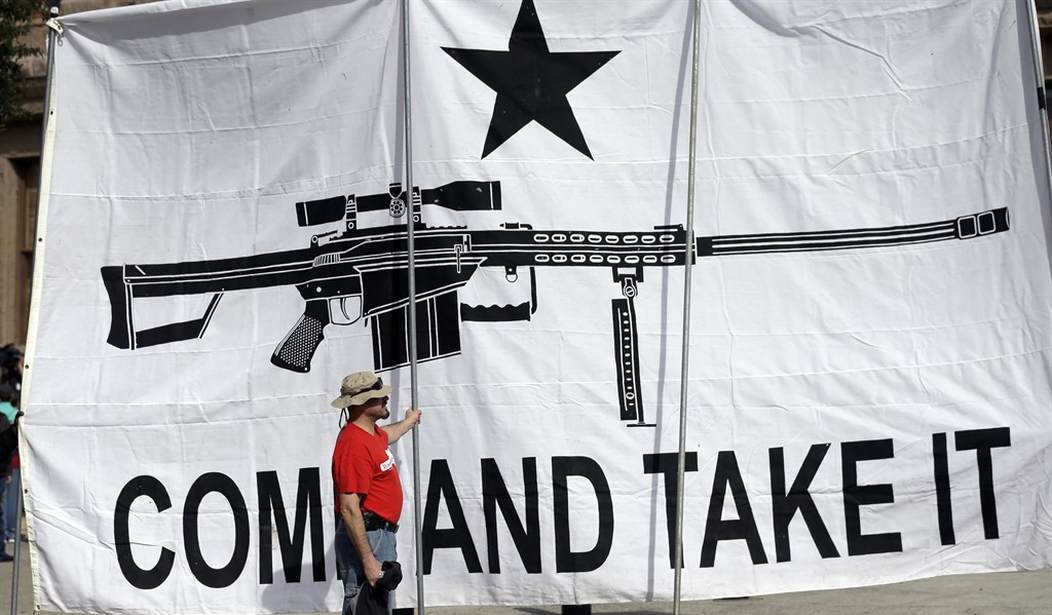The new gun controls that President Obama announced on Tuesday include a "clarification" of who is "engaged in the business of selling firearms," the upshot of which is that more gun buyers will be subject to background checks. Obama describes expanding the background check requirement (which Congress has declined to do) as a "commonsense gun safety reform" aimed at "keeping guns out of the wrong hands."
That view presupposes a consensus about whose hands are the wrong hands. Yet if such a consensus exists, it is not based on sound evidence or careful consideration. To the contrary, the government strips people of their Second Amendment rights far too readily, and changes favored by Obama would only compound that injustice.
In District of Columbia v. Heller, the 2008 decision in which the Supreme Court finally acknowledged that the Second Amendment protects an individual's right to arms, it cautioned that "nothing in our opinion should be taken to cast doubt on longstanding prohibitions on the possession of firearms by felons and the mentally ill." Although that comment seemed to validate the federal ban on gun ownership by anyone who has been convicted of a felony or subjected to court-ordered psychiatric treatment, it is hard to reconcile those lifelong disqualifications with the notion that the Second Amendment protects a fundamental human right to armed self-defense.
This ban is questionable even for people who use guns to commit crimes. After all, someone convicted of fraud or found liable for defamation does not lose his First Amendment right to freedom of speech even temporarily -- let alone for the rest of his life.
Even if you think it is fair and reasonable that people convicted of violent felonies are forever forbidden to own firearms, it makes little sense that the rule applies to felonies -- such as drug offenses -- that may not involve any actual victims, let alone violence. Similarly, why should someone who is involuntarily treated for suicidal impulses permanently lose his Second Amendment rights, especially if the aim is protecting the public from gun violence?
Recommended
Dubious as those disqualifying criteria are, they at least involve some measure of due process: a guilty plea or proof beyond a reasonable doubt for a felony conviction, "clear and convincing evidence" for civil commitment. But federal law also bans gun ownership by "unlawful user[s]" of controlled substances, which includes cannabis consumers as well as anyone who takes painkillers, stimulants, sedatives, or sleeping pills prescribed for someone else. It's not clear what evidence is required to disarm people on that basis, although holding a medical marijuana card suffices.
A bill supported by nearly every Democrat in the Senate and cosponsored by more than 90 Democrats in the House -- including many self-identified civil libertarians -- would make it even easier to take away someone's Second Amendment rights. The Denying Firearms and Explosives to Dangerous Terrorists Act gives the attorney general essentially unlimited power to block gun sales, provided he "determines" that the buyers are "appropriately suspected" of involvement in terrorism and "has a reasonable belief" that they "may" use the firearms "in connection with terrorism."
If a blocked gun buyer challenges the attorney general's decision, the government need only show it is more likely than not that the statutory requirements were met. If there were, say, a 30 percent chance that a reasonable suspicion is correct, this standard would amount to slightly more than a 15 percent chance that an appellant is a terrorist. Furthermore, the government could avoid showing the appellant evidence against him by claiming that doing so would jeopardize national security.
Last month, Rep. Mike Thompson, D., Calif., who not long ago received the highest possible rating from the American Civil Liberties Union, defended this bill in an interview with The Washington Post's Greg Sargent. If you want to keep your constitutional rights, Thompson said, you just have to "show you're not a problem." In other words, your hands are presumed wrong until proven right.

























Join the conversation as a VIP Member